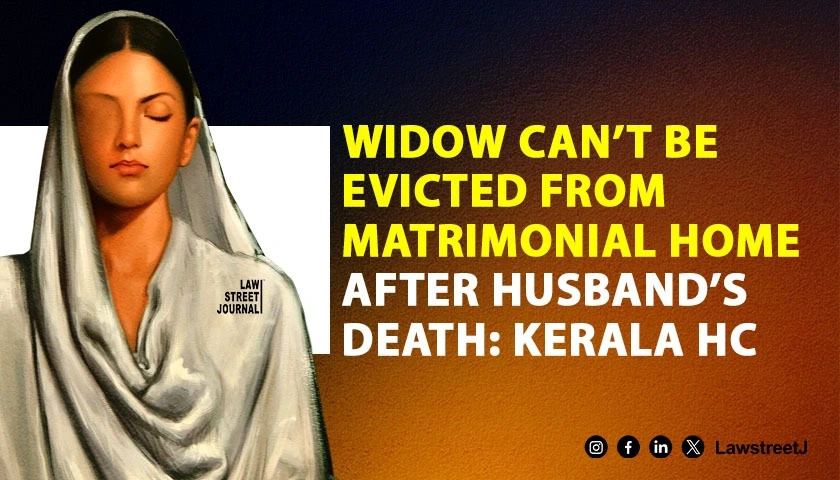Kerala: The Kerala High Court has delivered a landmark judgment reinforcing women’s rights under the Protection of Women from Domestic Violence Act, 2005, ruling that a woman cannot be ousted from her matrimonial home even after the death of her husband.
Justice M.B. Snehalatha delivered the judgment, upholding the fundamental right of women to reside in shared households, regardless of ownership or title.
The court was addressing a criminal revision petition filed by a widow who sought protection under the Domestic Violence Act after her in-laws attempted to evict her from the matrimonial home following her husband’s demise.
The court noted:
“The petitioner is an aggrieved person as defined under Section 2(a) of the DV Act, and she is in a domestic relationship with the respondents as defined in Section 2(f) of the said Act. The house in question is her matrimonial home, where she resided with her husband and children after marriage.”
On the issue of residence rights, the court observed:
“The evidence on record shows that the petitioner’s husband, Gopi, died on 14.6.2009. After his death, the respondents in the M.C. attempted to oust her from the shared household and also caused obstruction to her peaceful residence therein.”
Emphasizing the progressive nature of the Act, the court stated:
“One of the most crucial, progressive, and empowering features of the DV Act is the right to reside in the shared household, irrespective of ownership or title.”
In a significant directive underscoring women’s constitutional rights, the court noted:
“The Protection of Women from Domestic Violence Act, 2005, has been enacted to provide more effective protection of the rights of women guaranteed under the Constitution, who are victims of violence of any kind occurring within the family.”
Citing the Supreme Court’s observation in Prabha Tyagi v. Kamlesh Devi, the High Court remarked:
“In the Indian societal context, the right of a woman to reside in the shared household is of unique importance… Most women are not educated, nor are they earning; neither do they have financial independence to live singly.”
The court rejected arguments that the woman’s ownership of other property or her temporary stay at her parental home disqualified her from seeking protection under the Act.
It further emphasized that the Domestic Violence Act is “a transformative law that upholds the constitutional promise of equality, dignity, and protection for women,” and directed that the woman be protected from any acts of domestic violence. She must not be obstructed from entering or peacefully residing in the shared household.
Appearance:
Mr. K.I. Mayankutty Mather and Mr. P.P. Ramachandran, Advocates, appeared for the revision petitioners, while Mr. Abe Rajan, Mr. Liju M.P., Mr. Sajan Vargheese K., Advocates, and Ms. T.V. Neema, Public Prosecutor, appeared for the respondents.
Case Title: Chenthamara @ Kannan & Ors. vs. Meena & State of Kerala




![Kerala HC Quashes 498A Dowry Harassment Case Against Live-In Partner, Citing Lack of Relative Status [Read Order]](/secure/uploads/2023/08/lj_5693_1057c042-1e57-4e27-8c9e-25af0ec38ec4.jpg)
![Watching porn on mobile: Kerala HC highlights importance of mother cooked meals, outdoor sports [Read Order]](/secure/uploads/2023/09/lj_9155_Parental_supervision_of_mobile_phone_usage.jpg)
![Lakshadweep MP Mohammed Faizal Disqualified from Lok Sabha After Conviction Suspension Plea Rejected by Kerala High Court [Read Notice]](/secure/uploads/2023/10/lj_9640_87b5fd97-0e05-4ff8-9a99-3be1e4446192.jpg)




